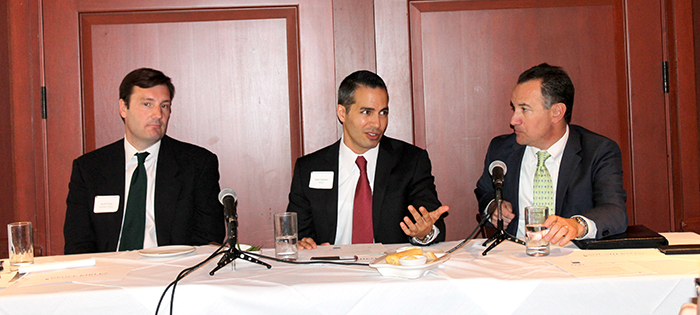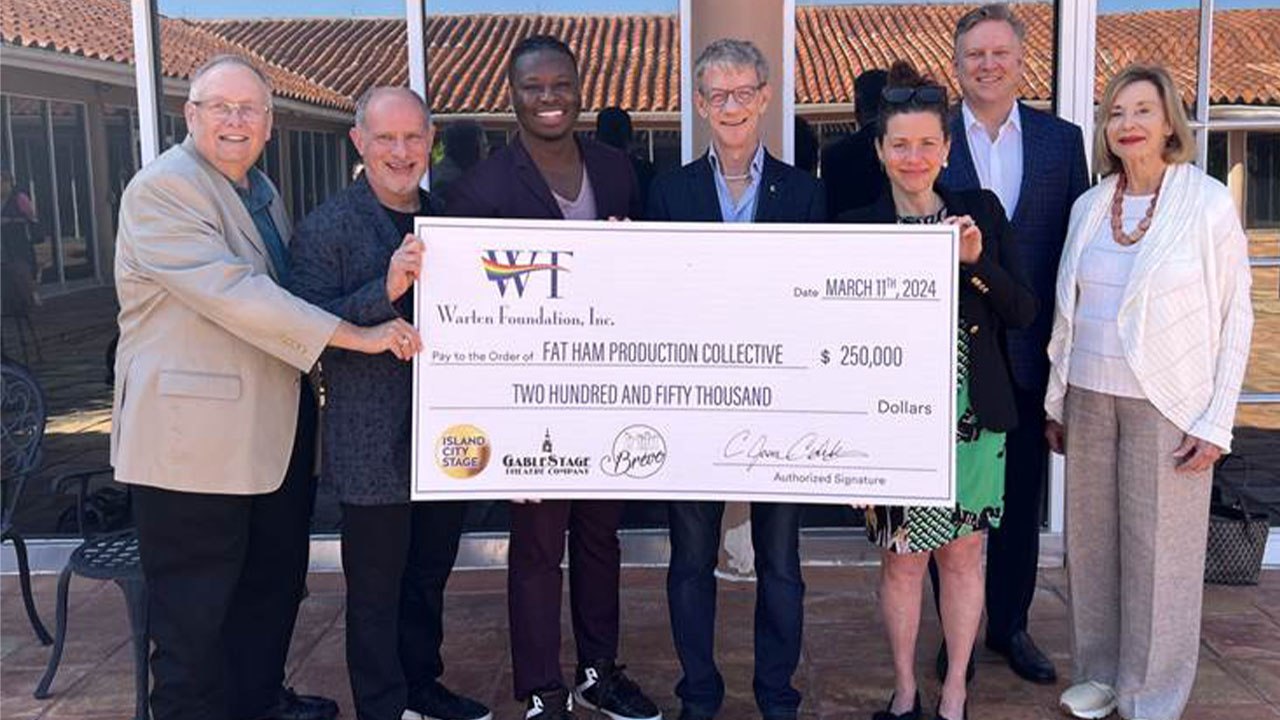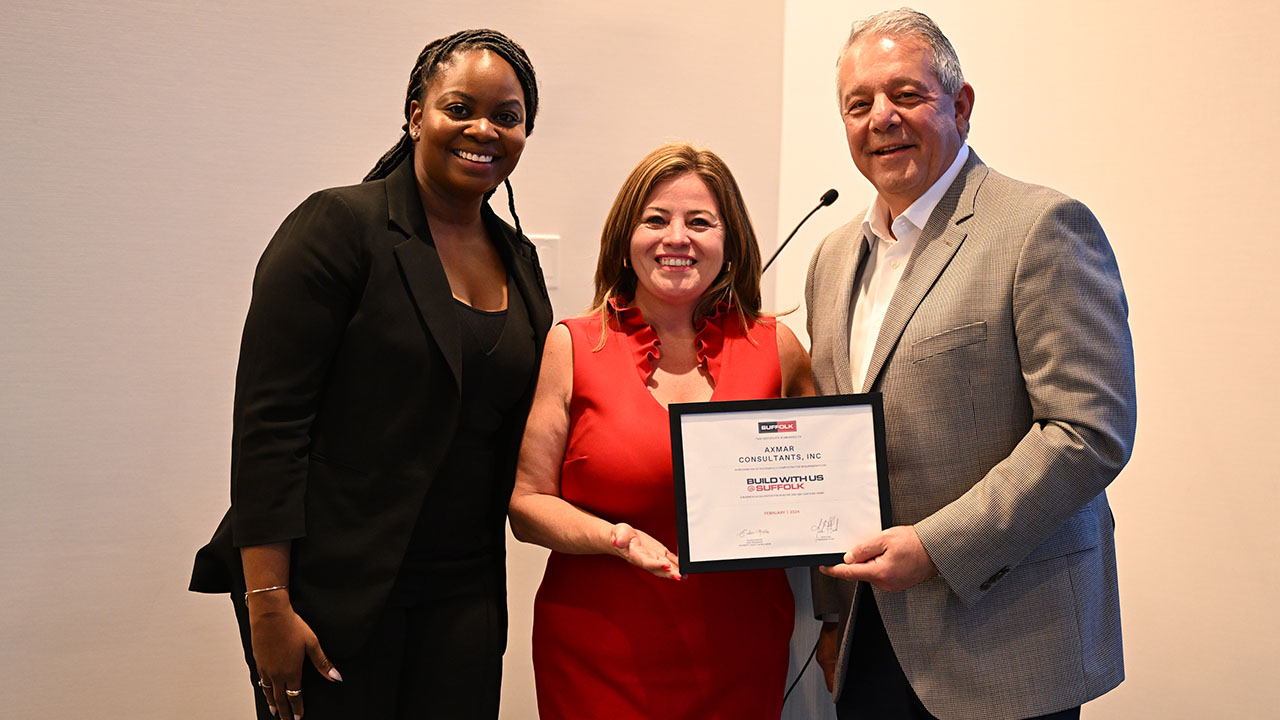By Kevin Gale
Many industries face innovative, disruptive threats, but getting businesses to realize that can still be a challenge.
Paul Sherman, CFO of ABB Optical Group, was one of the panelists who discussed innovation and competitive threats at a luncheon of the South Florida Executive Roundtable at Fleming’s Prime Steakhouse & Wine Bar in Coral Gables. SFBW was a media partner for the event, which also included panelists Matt Hashem, CFO of MDVIP, a membership program that promotes wellness and rapid access to doctors, and Geoffrey Kirles, VP and treasurer for the University of Miami.
Based in Coral Springs, ABB is the largest U.S. distributor of contact lenses – it stocks 2 million SKUs from the top four global manufacturers and offers overnight delivery. Sherman talked about how his company has looked at bringing innovation to the distribution of eyeglass frames, a system that is currently fragmented. Patients often have to wait days for frames and lenses; and ABB found many doctors weren’t that motivated to change.
“If you want God to laugh, show him your business plan,” Sherman said. “You have to be able to adjust.”
Now, doctors have to worry about companies such as Warby Parker, which is heavily marketing frames online. ABB’s research found about 52 percent of people leave doctors’ offices to buy their glasses elsewhere. “Threats in the industry help our cause because it’s the only thing that will make a doctor sit up and take notice,” Sherman said.
MDVIP, which is based in Boca Raton, is an innovator in the health care field. For about $150 a month, patients get more time with their doctor, tailored wellness programs, appointments the same or next day, less time in the waiting room and referrals to top medical specialists. Doctors can give up the high-volume practice necessitated by low insurance reimbursement rates.
A lot of money is being spent on innovation attempts in the $3 trillion health care industry, which eats up 15 percent of GDP, Hashem said, but not all of the innovations will succeed. One innovator on MDVIP’s radar is Qliance, a Seattle clinic operator that provides primary and preventive care for a monthly fee. Seeing that the company was backed by Amazon founder Jeff Bezos and Dell founder Michael Dell caught MDVIP’s attention, but Qliance was bought by its CEO and president in March. Hashem described that as the investors stepping away.
An article on GeekWire quotes the company’s CEO as saying the company was near breaking even, but it might not generate returns in the time frame desired by its investors.
Hashem said he gained a perspective on innovation during the four years MDVIP was owned by Procter & Gamble, starting in 2009. “They look at innovation from the standpoint of pricing and driving higher margins,” he said. For example, a new type of whitening toothpaste keeps Crest from just competing as a commodity toothpaste.
Hashem says MDVIP has a matrix to help analyze the process of innovation. Time to market and the amount of capital required are considerations.
While many innovations are project oriented, costs savings are great examples of ways micro-innovations can make a business more efficient and productive, he says.
Kirles said innovation is incredibly broad at UM, which is a major research and academic institution that also includes three hospitals.
There are tough questions about what gets funded. For example, the athletic director might argue that a $25 million indoor practice facility is vital for a football team that faces routine afternoon thunderstorms.
Kirles says he tries to think of himself as an advisor, so ideas get traction at the right time.
Flexibility is needed during the innovation process – you could be 90 percent of the way done and realize in the 11th hour that something’s not right, Kirles said. “You don’t completely kill it, but realize it might not be the right path to execute what you thought six months ago.”
Two competitive threats that the university is mindful of are professors’ ability to move to other universities and the consequences of rising sea levels, which are being studied by UM’s Rosenstiel School of Marine and Atmospheric Sciences.
Julio Frenk, the university’s new president, believes the sea level issue will impact South Florida, Kirles said. That’s a potential huge disruption in the long run – an institution called the University of Miami can’t just move to Atlanta. ↵
















